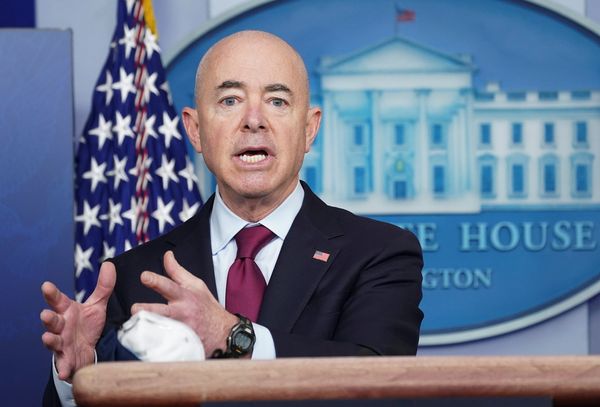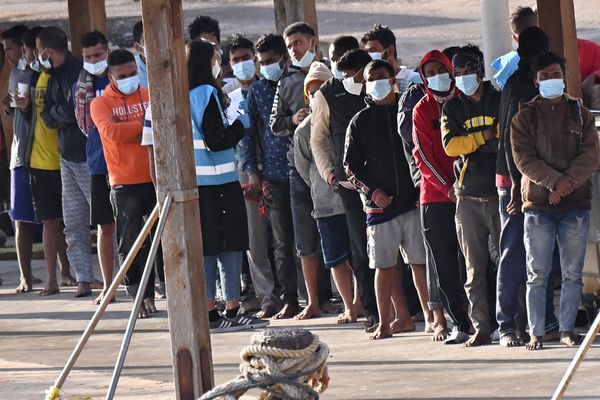
Holidaymakers file in and out of Brisbane’s Meriton Hotel on Herschel Street, seemingly unaware of the 20 or so detainees above them who have been locked inside over several months and, in some cases, years.
For the asylum seekers and migrants detained inside, the hotel feels anything but luxurious.
On level 14, New Zealander Freya Cox* peers out of a small window. She’s been detained at the hotel for six months and spends almost every hour of each day confined to her room.
“They take us to Pinkenba immigration centre for exercise, but that’s only for an hour every second day,” she says. “When we go to the centre, we can only walk up and down the driveway.”
Three weeks ago, Cox says, there was no water, meaning detainees couldn’t flush the toilet, take showers or brush their teeth. Last week, the water came back on but not the heat. Cox says detainees braved cold showers during an unusual bout of cool weather in the sunshine state.
For the past two months, Cox has been living on two-minute noodles and Optifast shakes, as she says the food is “terrible”.
The Refugee Action Coalition says there are about 20 asylum seekers and migrants who have committed crimes and are being detained at the hotel, awaiting deportation.
Under section 501 of the Migration Act, the immigration minister can refuse or cancel visas on character grounds if someone has “a substantial criminal record” or has been sentenced to imprisonment for a period of 12 months or longer.
“When we found out that some of the people had been in there for almost three years we got very concerned,” Refugee Action Coalition spokesperson Ian Rintoul says. “They’re effectively in solitary confinement for 47 out of 48 hours.”
Sarah Dale, the principal solicitor at the Refugee Advice and Casework Service, says hotels have been used as so-called “alternative places of detention” in Melbourne, Sydney, Brisbane and Perth.
“Hotels are inappropriate to be a permanent place of detention,” Dale says. “It’s simply not good enough to detain a person in these environments where their liberty and rights are curtailed.”
When asked about the conditions at the hotel, a spokesperson for the Australian Border Force says they “do not comment on operational or individual matters”.
“The Department of Home Affairs and ABF invest a significant amount of resources to provide high-quality facilities and amenities, a broad range of services and activities within the detention network and to ensure safety and security within the centres,” the spokesperson says.
Cox, a mother of three, has lived in Brisbane since she was 12 years old. The 25-year-old is facing deportation over assault and robbery charges, after serving two and a half years of a four-year sentence.
Cox says she was one of eight kids and regularly beaten as a child. To cope, she ran away from home and fell into trouble early on.
“There are things that have happened to me that I don’t know if I can ever tell my mum,” she says. “I was 16 when I had my first son.”
Australia’s deportation of New Zealanders has been a longstanding source of tension between the two governments.
The new Labor government says it will continue deportations under section 501 but may adjust ministerial direction to ensure decisions better take into account the time a person has been in Australia.
Dale says 501s are often detained for a longer period than their actual sentence.
“We have worked with clients who’ve had their criminal proceedings dismissed and they have continued to be detained in immigration facilities for an inordinate amount of time,” she says.
As a first-time adult offender who’s spent almost half of her life in Australia, Cox feels she’s been treated unfairly.
“This is the first time I’ve been to jail,” she says. “I’m fighting to stay because I’ve got kids. I’ve got nothing back home. This is what [the Australian government] doesn’t think about.”
Meriton and the Department of Home Affairs have been contacted for comment.
* Name has been changed










